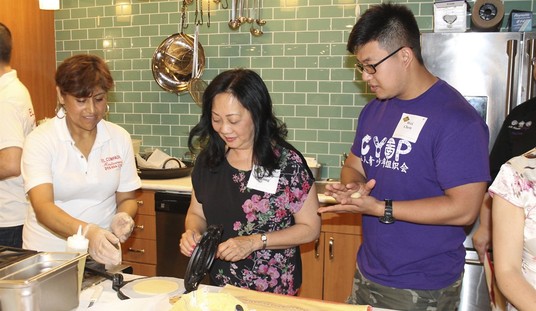Dëvar Torah – Parashath VaYétzé’ (Genesis XVIII, 10-XXII, 3)
In this week’s parasha, we find the story of Ya‘aqov’s sojourn with his maternal uncle, Lavan, and his marriages to Lavan’s daughters, Lé’a and Rachél.
As we saw at the end of last week’s parasha, Ya‘aqov was urged by his mother, Rivqa, to travel to her native land, Paddan Aram, for two reasons: to escape from his murderous brother ‘Ésav; and because Rivqa considered the local Canaanite girls unsuitable prospective brides for her son.
Upon his arrival in Paddan Aram, Ya‘aqov strikes his famous deal for the hand of Rachél:
I shall serve you seven years for Rachél, your younger daughter (XXIX, 18).
As every schoolchild knows, Lavan tricked Ya‘aqov at the end of the seven years, suddenly “remembering” that it was not customary in Aram to marry off the younger daughter before the elder. Ya‘aqov was forced to labor another seven years before being allowed to marry Rachél.
The Talmud (Bava Bathra 123a) explains that the switch also involved an act of rachmanuth, of mercy, on Rachél’s part.
There, we learn that Lé’a was originally intended to marry ‘Ésav (“Lavan’s elder daughter to Yitzchaq’s elder son”) and that her eyes were “soft,” as the verse tells, from weeping at the prospect. When Ya‘aqov met Rachél at the well, the Talmud tells us, she informed him of her father’s treacherous character, and he gave her simanim (“signs,” “passwords”) so that he could avoid being fooled. Out of rachmanuth for her sister, Rachél revealed the simanim to her, and thus was an accessory to her father’s scheme.
Despite having a seven-year head start on her sister, it seems that Lé’a was unable to conceive and give birth until after Ya‘aqov had married Rachél. This is implied by the verse:
And Ha-Shem saw that Lé’a was hated, and He opened her womb; and Rachél was barren (XXIX, 31).
The Sforno ad loc. confirms it: “For [Ya‘aqov] recognized in [Lé’a] after [the wedding] signs of barrenness, as it states, ‘and He opened her womb.'” He thought that for this reason she had agreed to mislead him.
Ya‘aqov recognized that Rachél was motivated by mercy and pity for her sister — but seven years of unsuccessful attempts to build a family had brought resentment in their wake.
Whatever the reason for the “closure” of Lé’a’s womb, Rachél, the Sforno tells us, “was barren by nature.” He Who had “closed” Lé’a’s womb now opened it to great fecundity, and she bore four sons one after the other. The midrash makes it even starker, telling us that she bore a twin girl for each of her sons:
And Rachél saw that she had not given birth for Ya‘aqov, and Rachél became jealous of her sister, and said to Ya‘aqov, Give me children, and if not, I am dead! (XXX, 1).
Poor Rachél, “barren by nature,” forced to witness her sister’s happiness bearing child after child while her emotional agony builds and builds. Her cry of anguish to her husband echoes down through the ages: Give me children!
And Ya‘aqov lashes back:
And Ya‘aqov became angry with Rachél and said, Am I in place of G-d Who has withheld from you the fruit of the belly? (ibid., 2).
Whereupon Rachél resignedly follows the example of our matriarch, Sara, giving her maid-servant to her husband in the hope of having children vicariously. Her maidservant, Bilha, bears Ya‘aqov two sons, prompting Lé’a to follow her example, and her maidservant, Zilpa, also bears two sons. Then, Lé’a bears yet two more sons and a daughter, Dina — before G-d finally takes notice of Rachél’s plight, and she has Yoséf.
My wonderful wife Chana, merciful daughter of Avraham that she is, feels their pain, and asks: Why should it be necessary that Lé’a be barren for seven years, so that a relationship which begins strained turns into sin’a (“hatred”)? Why should Rachél be subjected to seeing every other woman’s happiness while she is denied her own?
What is worse, Chana discerns a disturbing pattern here: Sara, a righteous prophetess greater than Avraham, is allowed to be childless for 89 years, finally giving her maid-servant, Hagar, to Avraham so that he, at least, might have an heir, and is then subjected to Hagar’s putting on airs when the fruit of that union, Yishma‘él, is born. Rivqa remains barren for twenty years, she and her husband constantly praying and beseeching G-d for children, before finally becoming pregnant with the twins Ya‘aqov and ‘Ésav.
Why was all of this anguish necessary?
Twenty years of non-stop effort by Yitzchaq and Rivqa are distilled into one verse:
And Yitzchaq prayed on behalf of his wife because she was barren, and Ha-Shem answered him, and Rivqa his wife became pregnant (XXV, 21).
Rashi tells us that this is all that Rachél was asking of Ya‘aqov when she cried out “Give me children”: “Is this how your father treated your mother? Did he not pray for her?”
The Ramban expresses shock: If this is all she was asking, why did Ya‘aqov become angry and ask, “Am I in place of G-d?” What is more, Rashi explains Ya‘aqov’s words to mean: “You want me to act like my father, but my father had no children; I have children”; mimméch mana vëlo mimmenni (“From you He has withheld them, and not from me!”)
Again, this is shocking; how many stories of tzaddiqim praying for other men’s wives do we know of? As the Ramban points out, Eliyahu and Elisha‘ prayed for non-Jewish women to have children.
How could Ya‘aqov not pray for his own wife?
We’ll consider the Ramban’s answer a bit later. For now, it suffices that the midrash (Bëréshith Rabba LXXI, 10) makes it clear that all of the patriarchs prayed for their wives’ fertility problems. In discussing the specific example of Yitzchaq and Rivqa (the example which Rachél threw up to Ya‘aqov), the Talmud (Yëvamoth 64a) makes a pivotal statement.
In XXV, 21 we read that Yitzchaq prayed lënochach ishto, more accurately translated “in the presence of his wife,” rather than ‘al ishto which the English translation above would render. Rabbi Yitzchaq understands the phrase to mean that both of them were barren, whereupon he asks why they were barren, and answers:
Because the Holy One, Blessed is He, desires the prayer of tzaddiqim.
Rabbi Yitzhaq then picks up on the peculiar verb (vaye‘tar) used to describe the intensity of Yitzhcaq’s prayer, and relates it to the word ‘athar (“pitchfork”). He asks:
Why is the prayer of tzaddiqim compared to a pitchfork? Just as a pitchfork turns over the hay from place to place, so does the prayer of tzaddiqim turn over the attributes of the Holy One, Blessed is He, from wrathfulness to mercy.
In short, prayer can effect a “revolution” in Heaven.
And this is what G-d wants from mankind, for such prayers transform the world, making rachamim more prevalent than din, and, as usual, our tzaddiqim lead the charge. As the Midrash Sochér Tov 112 says of Yitzchaq:
“His seed will be mighty in the land” — for he caused the barren woman to give birth.
The previous Ozherover Rebbe tells us in the Bë’ér Moshe that he was able to accomplish this through his vigorous prayer because, as we have noted before, his fundamental nature embraced din, gëvura. His father, Avraham, the ish chesed, while he surely felt deeply for Sara and, as the midrash notes, prayed for her, was less forceful in his efforts. Therefore, says the Bë’ér Moshe, Sara helped him out:
Sara brought in her co-wife [the maid-servant, Hagar] in order to awaken Divine rage against the measure of judgment Above.
He explains the process as follows:
That is, just as Sara brought in her co-wife and caused herself grief, so is a grievance awakened Above against the attribute of judgment, which has usurped the place of the attribute of kindness, the purpose of Creation — since it is G-d’s will to do good — and of itself a “war” is waged against din.
By voluntarily letting herself in for a measure of (undeserved) suffering, Sara awakened Divine mercy upon herself, and this gave added impetus to Avraham’s prayers on her behalf, resulting in her miraculous pregnancy with Yitzchaq.
Now we can consider the Ramban’s answer to his own question. Rachél’s argument with Ya‘aqov was that he wasn’t doing enough; it did not mean, G-d forbid, that Ya‘aqov was unconcerned for her, and was not praying for her. But since he was not barren as his father had been, his prayers could not achieve by themselves the revolutionary pitch which his father’s had done. Rachél, in her extremity, was asking more than he could give, and so he answered her: “And I in place of G-d Who has withheld from you the fruit of the belly?” It isn’t up to me; I’m doing all I can.
So Rachél took advice from Sara. This is hinted in Onqëlos’ version of her words on the birth of Bilha’s first son: Danani Elo-him vëgam shama‘ bëqoli (“G-d has judged me and also heard my voice” XXX, 6) she said, and Onqëlos renders the last phrase, vë’af qabbél tzëlothi — “and He has also received my prayer.” Bringing in her own co-wife was a form of prayer.
That and one thing more. I mentioned at the beginning that Lé’a’s marriage to Ya‘aqov had come about through her sister’s rachmanuth. Thus it seems fitting that Lé’a’s child-bearing should wait until Rachél, too, was married. What is interesting is how Lé’a reciprocated Rachél’s kindness. The Talmud (Bërachoth 60a) relates that when she was pregnant with Dina, Lé’a knew through her own prophetic powers that the fetus was a boy. She also knew that Ya‘aqov was destined to have only twelve sons; and so, in order that her sister not be considered less than the servants, and also bear two boys, Lé’a prayed that the fetus become a girl, and Dina was the result. Immediately after Dina’s birth we read:
And G-d remembered Rachél and G-d listened to her and opened her womb (XXX, 21).
When we are dealing with the patriarchs and matriarchs, we are dealing with people on a spiritual level unimaginable today. Yet, as the Ramban famously says elsewhere, ma‘asé avoth siman labanim — their deeds are a symbol for us. The notion of “creative suffering” embodied in the actions of Sara, Rachél, and Lé’a is beyond most of us — but the notion that we have to help ourselves, to do what we can to bring down rachmei shamayim, “the mercy of Heaven,” on ourselves, rather than depend on others to intercede for us, is very relevant in every generation. All of our prayers — and reciprocal kindnesses — will help in bringing about the redemption.









Join the conversation as a VIP Member